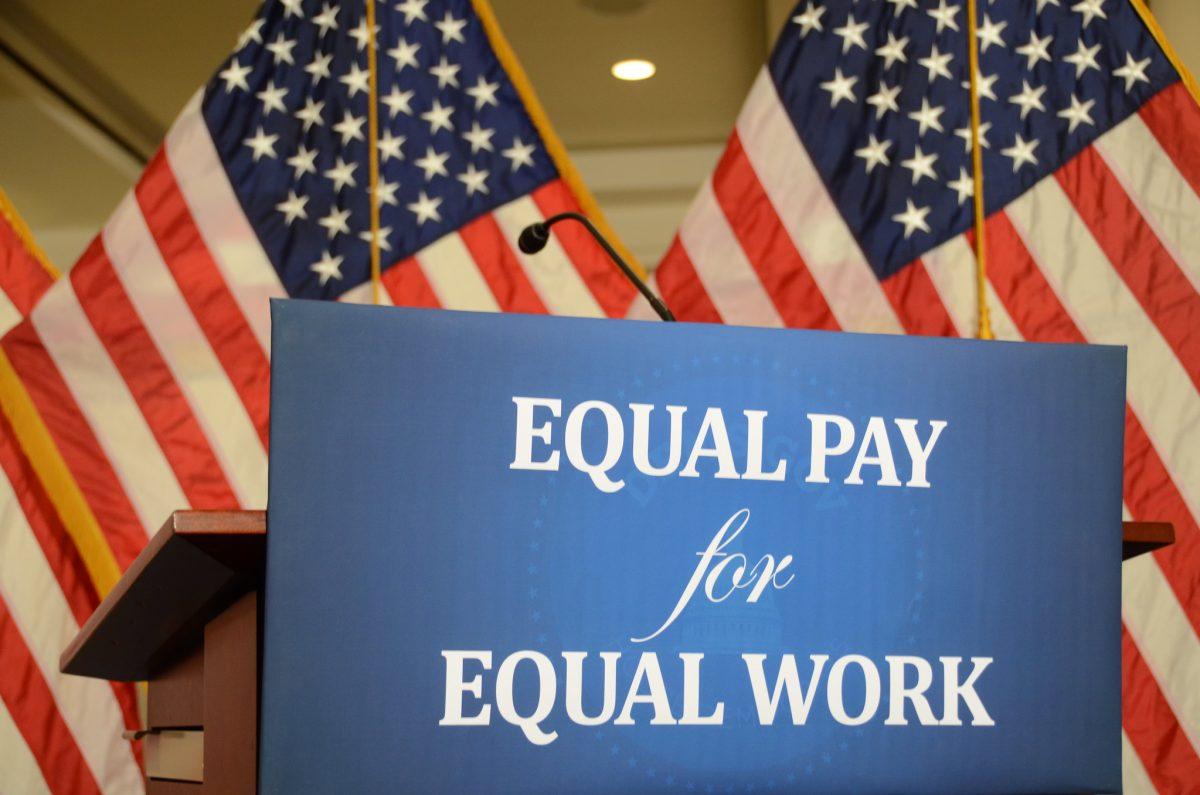Contributing Writer Madie Phillips, ’23
It’s been over fifty years since the Women’s Rights Movement happened here in the United States yet women are still not equal to men on many levels. One major place in which women are still facing discrimination is in their income. Women across the globe have been dealing with this issue for many decades yet, according to The Guardian, only four countries have passed legislation that actually forces employers to give women the same pay as men. In this modern age, there is no excuse for this inequality.
Yes, there has been some growth in this over time, but in the past few decades it has started to slow down. In 2018, women earned, on average, 82 percent of what a man earned doing a similar job. That means for every dollar a man made, a woman only made 82 cents which can really stack up against women and their families. And in 2014, that percentage was only around 79 percent. Not much growth. According to a recent analysis done by the Institute for Women’s Policy Research, if equal pay were to be established in the United States, poverty experienced by working women and their families could be decreased by 50 percent. But at the current rate, it will take over forty years for women to finally get paid the same as their male counterparts and it will take even longer for women of color.
With New York State being one of the most progressive states in the United States, most would think that we would be well on our way to pay equality. But even as the state with the second smallest pay gap (only a little bit behind California), we haven’t even reached a gender pay ratio of 90 percent. But there is some promise. Legislation passed in New York has increased the minimum wage and now provides women with twelve weeks of paid family leave. For most of the remaining population in the United States however, women are not seeing these kinds of changes.
A percentage of the population still argues that there are legitimate reasons for the gap. One of the arguments is that women don’t get paid as much as men because they don’t negotiate for better, higher pay. The Guardian however states that women do ask for raises, but they don’t receive them as often as men. The Workplace Gender Equality Agency points out that negotiation is a more masculine behavior so when women try to negotiate with their employers they tend to be offered less and if they try to be assertive they can just be penalized. So why try if you know there is a large chance you could be punished?
Another claim is that women are less educated and therefore less qualified than men. In the past, this could have been true. But, according to the U.S. Bureau of Labor Statistics, the amount of women with college degrees has now exceeded those earned by men. In 2015, 40.7 percent of women in the labor force earned college degrees while only 36.4 percent of men had. You’d think this would benefit women, but a study done at Georgetown University shows that women’s degrees are just valued less than men’s. A woman has to earn a Ph. D. (the highest university degree) in order to be paid the same as a man who has only earned a B. A. degree (Bachelor of Arts). Men and women take the same classes in college, yet for some reason society requires a woman to study much longer than a man in order to eventually receive the same income.
There are simply no excuses for the pay gap. Women make up half of the world’s population yet they have faced discrimination year after year after year. Every advancement in women’s rights has required women to fight for what should have been a basic human right to begin with. At some point, the people in charge need to look past their ignorance and provide women (and all people) with an equal chance in this world.



































